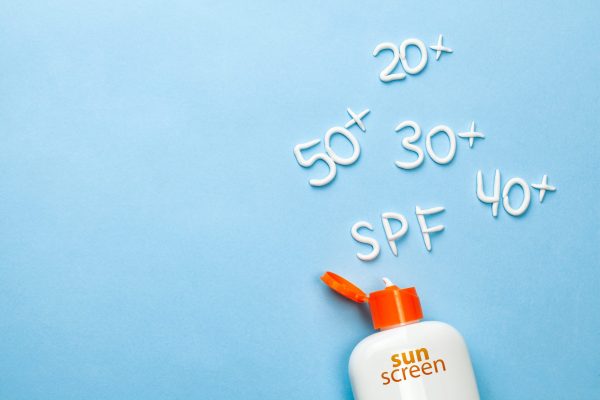
How Long Does Sunscreen Last?
Sunscreen is one of the most important skincare products you can use to protect your skin from harmful UV rays. However, knowing how long sunscreen lasts is crucial to ensure it provides effective protection throughout the day. Let’s break it down to help you make the most of this essential product.
1. Understanding Sunscreen’s Duration on Skin
Most sunscreens are designed to last on your skin for about two hours. This means you’ll need to reapply it regularly if you’re outdoors for an extended period. However, certain factors, like swimming, sweating, or wiping your face, can reduce its effectiveness even sooner. That’s why it’s often recommended to reapply sunscreen:
- Every 2 hours during regular sun exposure.
- Immediately after swimming or sweating.
- After toweling off.
Even if your sunscreen is labeled “water-resistant,” it usually lasts only 40 to 80 minutes in water, depending on the product’s specifications. Always check the label for guidance.
2. Sunscreen Expiration Date
Sunscreens do have an expiration date. Most are formulated to stay effective for about two to three years when stored properly. Using expired sunscreen can result in reduced protection, which may leave your skin vulnerable to UV damage.
To ensure your sunscreen is effective:
- Check the expiration date on the packaging.
- Avoid storing sunscreen in hot places (like a car), as heat can break down the ingredients.
- If the texture, color, or smell of your sunscreen has changed, it’s better to discard it.
3. How Much Sunscreen Should You Use?
To get full protection, you need to apply the right amount. Experts recommend using about a shot glass worth (approximately 1 ounce) of sunscreen for your entire body. For your face and neck, use about a nickel-sized amount. Don’t forget often-missed areas like your ears, the back of your neck, and the tops of your feet.
Recommended Sunscreens
Here are some highly regarded sunscreens that cater to different skin types and preferences:
- EltaMD UV Clear Broad-Spectrum SPF 46
- Great for sensitive and acne-prone skin.
- Lightweight and non-greasy.
- Contains niacinamide for added skin benefits.
- La Roche-Posay Anthelios Melt-in Milk Sunscreen SPF 60
- Offers high SPF protection.
- Water-resistant for up to 80 minutes.
- Suitable for all skin types.
- Neutrogena Hydro Boost Water Gel Lotion SPF 50
- Hydrating formula that feels lightweight.
- Non-comedogenic, so it won’t clog pores.
- Affordable and widely available.
- Black Girl Sunscreen SPF 30
- Made specifically for melanin-rich skin tones.
- Leaves no white cast.
- Enriched with natural ingredients like avocado and jojoba.
- Supergoop! Unseen Sunscreen SPF 40
- Invisible finish, perfect for wearing under makeup.
- Oil-free and suitable for most skin types.
- Reef-safe formula.
Frequently Asked Questions On How Long Does Sunscreen Last
1. Can I use sunscreens every day, even if I’m indoors?
Yes, you should use sunscreen daily. UV rays can penetrate windows, so applying sunscreen indoors is essential to protect against sun damage.
2. Does a higher SPF mean better protection?
SPF 30 blocks about 97% of UVB rays, while SPF 50 blocks about 98%. Higher SPFs offer slightly more protection but should not replace reapplying sunscreen regularly.
3. Can I use sunscreen and makeup together?
Absolutely. Apply sunscreen first, let it absorb, and then layer your makeup. Some makeup products also include SPF, but they shouldn’t replace standalone sunscreen.
4. Do I need sunscreens on cloudy days?
Yes! Up to 80% of UV rays can penetrate clouds, so sunscreen is necessary even when it’s overcast.
5. How do I know if a sunscreen is “reef-safe”?
Reef-safe sunscreens avoid ingredients like oxybenzone and octinoxate, which can harm coral reefs. Look for products labeled “reef-friendly.”
6. What’s the difference between physical and chemical sunscreens?
Physical sunscreens (mineral-based) sit on the skin’s surface and deflect UV rays. Chemical sunscreens absorb UV rays and convert them into heat. Both are effective but cater to different preferences and skin types.
7. Is it okay to use expired sunscreens?
No, expired sunscreens may not provide adequate protection and can leave your skin exposed to UV damage.
8. Should children use different sunscreens?
Yes, children’s sunscreens are often formulated with gentler ingredients. Look for mineral sunscreens with zinc oxide or titanium dioxide.
9. Can sunscreens prevent tanning?
Sunscreen can reduce tanning by blocking UV rays, but no sunscreen can block 100% of them. Prolonged exposure may still result in some tan.
10. Does sunscreen block Vitamin D production?
Sunscreens may slightly reduce Vitamin D synthesis, but it doesn’t completely block it. If you’re concerned, talk to a healthcare provider about supplements.
Conclusion
Sunscreen is a powerful tool to protect your skin from the harmful effects of the sun. Remember to choose a sunscreen that suits your skin type, apply it generously, and reapply it every two hours. By making sunscreens a daily habit, you can prevent sunburn, premature aging, and even skin cancer. Prioritize your skin’s health—it’s worth it!

Leave a Reply